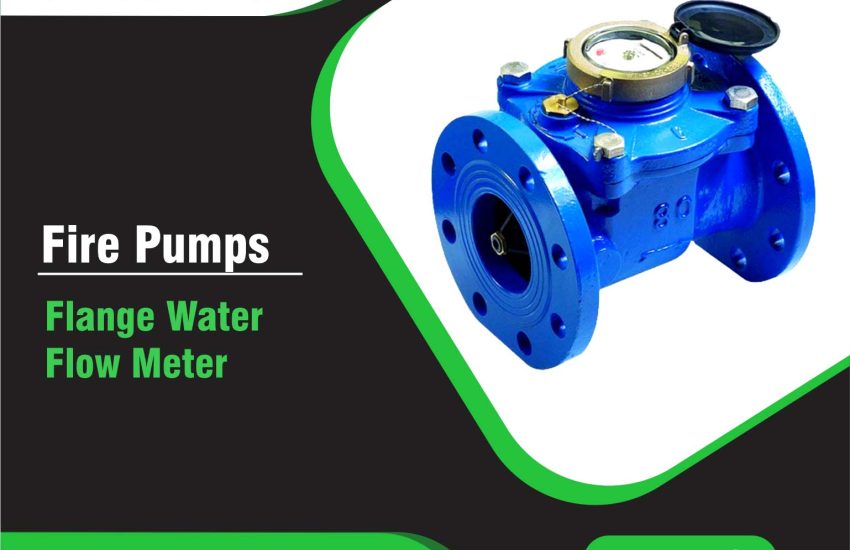Flange Water Flow Meter are essential instruments for measuring the flow of water in various industrial and commercial applications. These meters provide precision, reliability, and ease of installation, making them popular choices for water flow measurement. This article provides a comprehensive overview of flange water flow meters, including their specifications, key features, and common applications.
What is a Flange Water Flow Meter?
A flange water flow meter is a type of flow meter used to measure the flow rate of water in pipelines. It features flanged connections, which make installation and maintenance easy. These meters commonly serve in water treatment plants, chemical industries, municipal water systems, and HVAC systems.
Key Specifications of Flange Water Flow Meters
Flange water flow meters come in various designs and configurations, depending on the application and flow measurement requirements. Here are the key specifications that define these meters:
- Material:
- Manufacturers typically make them from stainless steel, cast iron, or PVC.
- Stainless steel provides high corrosion resistance, which suits water and other harsh fluids.
- Size Range:
- They are available in sizes from 1 inch to 48 inches or more.
- Manufacturers can create custom sizes to suit specific needs.
- Flow Range:
- Flow rates vary by meter design, ranging from 0.1 to 100,000 liters per minute (LPM).
- Different models are available for low, medium, or high flow applications.
- Accuracy:
- Flange water flow meters offer accuracy within ±1% to ±2% of the reading.
- Manufacturers offer high-accuracy models for critical applications.
- Pressure Rating:
- These meters usually have pressure ratings from 150 psi to 1500 psi.
- High-pressure ratings are suitable for industrial and high-pressure applications.
- Temperature Range:
- Flange water flow meters typically operate in temperatures ranging from -20°C to 120°C.
- Special models handle extreme temperatures.
- Connection Type:
- They feature flanged connections, making it easy to integrate them into existing pipeline systems.
- These meters support various flange standards such as ANSI, DIN, and JIS.
- Display Type:
- Flange water flow meters come with either digital or analog display options.
- Many models feature LCD or LED displays for clear readings.
- Power Supply:
- These meters can be battery-operated, AC-powered, or solar-powered.
- Remote monitoring and data logging features can integrate with them.
Features of Flange Water Flow Meters
- High Precision and Accuracy:
- These flow meters offer high accuracy, ensuring that water flow measurement processes run efficiently.
- Durable and Corrosion-Resistant:
- Designed to withstand harsh environments and chemicals, these meters suit both clean and dirty water applications.
- Easy Installation:
- The flange design allows for quick and easy installation, reducing setup time.
- Low Maintenance:
- With robust construction and minimal moving parts, these meters require little maintenance and offer long service life.
- Wide Range of Applications:
- These meters are suitable for water distribution systems, industrial processes, cooling systems, and irrigation systems.
- Compatibility with Automation:
- Users can integrate these flow meters with SCADA systems for automated data collection and real-time monitoring.
Applications of Flange Water Flow Meters
Flange water flow meters are versatile and serve in various industries and sectors. Some common applications include:
- Water Treatment Plants:
- Operators use these meters to measure water inflow and outflow, helping to monitor treatment processes and ensure regulatory compliance.
- Municipal Water Systems:
- Water utilities use flange water flow meters in municipal water distribution systems to monitor flow rates and detect leaks.
- Industrial Applications:
- Industries such as food and beverage, pharmaceuticals, and chemical manufacturing use these meters to control water usage and ensure consistent production processes.
- HVAC Systems:
- These meters measure water flow in heating, ventilation, and air conditioning systems to optimize energy consumption.
- Irrigation Systems:
- Farmers use flange water flow meters in agriculture to measure water flow, manage irrigation systems, and conserve water.
Benefits of Using Flange Water Flow Meters
- Accurate Flow Measurement: These meters provide real-time and accurate flow data, which is crucial for process control and energy savings.
- Cost-Effective: Using flange water flow meters reduces water wastage and energy consumption, resulting in lower operational costs.
- Robust Performance: These meters perform reliably even in harsh environments with fluctuating flow rates and water quality.
- Ease of Maintenance: With their durable design and minimal maintenance needs, flange water flow meters minimize downtime and repair costs.
Conclusion
Flange water flow meters are essential tools for efficient water flow management across industries. Their accurate measurement capabilities, durable construction, and easy installation make them valuable for many applications. When selecting a flange water flow meter, consider the material, size, accuracy, and flow range to ensure it meets your specific needs. Whether used in municipal water systems, industrial processes, or irrigation, flange water flow meters provide reliable water flow measurement.


